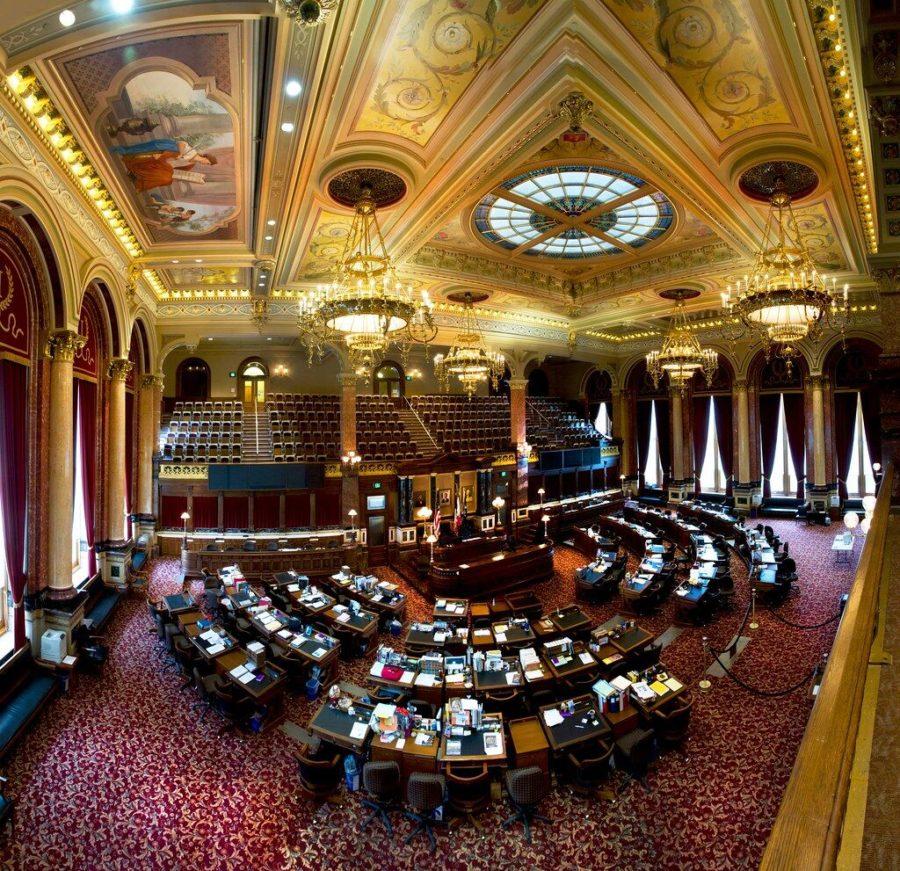Guest Column: House File 802 does not affect academic courses
I appreciate your recent coverage of HF 802 and diversity education, but I believe that some mistaken interpretations of this legislation have been made that could adversely affect ISU education.
September 9, 2021
I have received a number of inquiries from faculty members and others in the community asking what impact House File 802 has on the coverage of diversity topics in academic courses. The simple answer is “None.”
HF 802, passed this spring by the Iowa Legislature, places certain restrictions on mandatory staff training with regard to a list of “specific defined concepts” related to diversity. I did not support the bill, but as Ranking Member of the Senate Education Committee, I was heavily involved in the debate over the terms of the restrictions.
I am glad to report that the bill includes clear language explicitly exempting the “larger course of academic instruction” from the restrictions placed on other activities. HF 802 creates Section 261H.7 of the Code of Iowa. Subsection 4 of that new section states,
“4. This section shall not be construed to do any of the following:
c. Prohibit discussing specific defined concepts as part of a larger course of academic instruction.
f. Prohibit the use of curriculum that teaches the topics of sexism, slavery, racial oppression, racial segregation or racial discrimination, including topics relating to the enactment and enforcement of laws resulting in sexism, racial oppression, segregation and discrimination.”
The “larger course of academic instruction” includes any academic course offered for credit and listed in the ISU course catalog. All such courses are completely exempt from HF 802, regardless of whether a course is or is not required for a major or a degree. The restrictions in HF 802 only apply to “training,” a term that narrowly applies to such functions as training student employees and university staff on university bureaucratic procedures. Only if an activity is “training”—and not “academic instruction”—does the question of “mandatory” become relevant. Faculty should not be misled on this point.
Both the University of Iowa and the University of Northern Iowa have adopted this view. The University of Iowa’s guidance document states, “If passed, HF 802 would have zero impact within the classroom as academic instruction is specifically exempted from the legislation.”
The UNI guidance document to its faculty is equally clear and succinct, “Academic courses at UNI are not impacted by House File 802. House File 802 does not limit the curriculum taught by our faculty in academic courses offered at UNI.”
I salute the work of the ISU Faculty Senate in refining the policy on diversity education. Such education is vital to our student’s success in life. We must educate our students to live and succeed in an increasingly diverse world. The Faculty Senate’s work on this project must continue—and it can continue without interference from HF 802.
Let me close by noting that, HF 802 aside, the normal standards for academic discourse must still apply to all coursework. In particular, we must support and, indeed, promote the free expression of all points of view by students and faculty alike. All students must feel free to express their points of view on topics of controversy and to critique the points of view of others in a respectful manner. It is only through such robust dialog and debate that our students will develop the critical thinking skills so necessary to prepare them for life in the complex world of the future.
Sen. Herman C. Quirmbach is the Iowa Senate of District 23 (Ames) and a ranking member Iowa Senate Education Committee.







